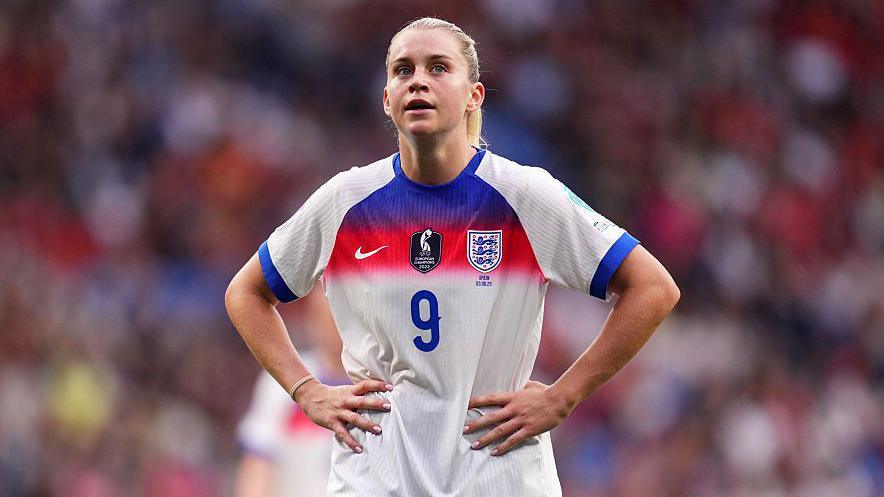In recent discussions surrounding women’s sports, the topic of online abuse has emerged as a significant concern among athletes. Notably, England forward Alessia Russo emphasized her decision to stay off social media during major tournaments due to the potentially harmful impact of online abuse. Russo, along with her Lionesses teammates, voiced their sentiments as they gear up for the upcoming European Championship in Switzerland next month. These discussions are especially poignant in light of similar experiences shared by prominent figures in sports, such as British women’s tennis star Katie Boulter, who has also faced numerous instances of online hostility, including death threats.
At just 26 years old, Russo articulated the need for athletes to protect their mental health while navigating the pressures of public scrutiny. “I think every player might have a different story about that side of the game but it’s definitely one that can be really damaging,” she explained. This highlights the gravity of the issue—where players often find themselves at the mercy of vitriol shared on social media platforms. In the past, Russo admitted to being deeply affected by the negativity, sharing her journey of learning to prioritize the opinions of her teammates, coaches, and family over those of strangers online.
As the Lionesses prepare for their campaign, players like Manchester United midfielder Grace Clinton and Chelsea forward Lauren James echoed Russo’s sentiments. Clinton expressed her intention to distance herself from social media, which she described as a “toxic environment.” James, in her own reflections, articulated the absurdity of receiving abuse even in trivial situations, like losing in video games. “Sometimes it’s not even to do with my performance… I guess when it’s your first time though, maybe it might touch someone but I’m used to it,” she stated, encapsulating how ingrained such reactions have become in the lives of athletes.
Despite the battles against online abuse, the camaraderie among the team remains strong. Chelsea midfielder Kiera Walsh shared her experience of abstaining from social media entirely, while teammate Lucy Bronze elaborated on the personal nature of the hurtful comments directed at them, especially since family members often read such critiques. “Social media is amazing in one way and absolutely awful in another,” Walsh pointed out, highlighting the double-edged sword that platforms like Twitter and Instagram represent in the athletes’ lives.
Manchester United goalkeeper Ella Toone mentioned that while she personally engages with Instagram, she respects individual preferences—some teammates choose to turn off their phones completely to avoid unwanted distractions. This collaborative and understanding approach among the squad helps maintain their collective focus on their tournament goals. Toone and Russo, having both faced online abuse in their earlier playing careers, are determined to support and guide younger players in managing their online presence and dealing with the negativity.
The concern for younger players entering their first major tournament is palpable. “We have such a talented squad. We want to make sure they feel confident within themselves,” Toone remarked. This shows a commitment not only to performance on the pitch but also to creating a supportive environment that fosters personal growth amid the pressures of sporting excellence.
As the Lionesses head into Euro 2025, their emphasis on mental health and the impact of social media abuse underscores a broader discussion within sports regarding how athletes can navigate their careers while standing against negativity and hostility. It is a dialogue that seeks to empower athletes, advocating for a proactively shielding approach towards social media while reaffirming the support within teams. This issue remains vital as women’s sports gain visibility, and the experience of female athletes continues to resonate beyond the field, prompting discussions about respect, empathy, and mental well-being in sports.



